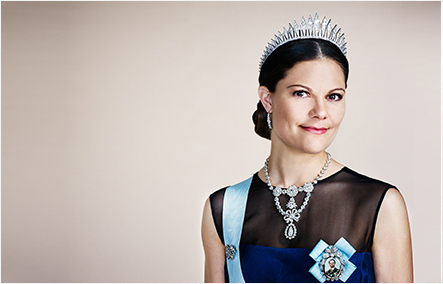Tradition/cultural heritage, popular support, apolitical head of state, representation
Tradition/cultural heritage
Monarchs have been players for power on the Scandinavian Peninsula since before the countries there were even known by their present day names. The first Swedish king in a consecutive regnal succession — Erik the Victorious — did not even have a unified Sweden to rule over; the nation was divided into several lands. The modern Sweden was formed in the Early Vasa Era, from 1523 to 1611.
So one could say Sweden had its kings before before its kings had Sweden. Sweden was born a monarchy and has remained so since then.
Popular support
The Swedish royal family enjoys popular support. And although support for the family as a whole has been veining in later years, the heir apparent — crown princess Victoria — earns the highest popular support of any public figure among Swedes.
There is a republican movement, seeking to abolish the Swedish monarchy, but even they give a vote of confidence to Victoria.

Crown princess Victoria enjoys the highest popular support among Swedes
Apolitical head of state
The monarch is also the head of state, and seeing that the process by which the monarch is appointed is apolitical, so is the head of state. Having an apolitical head of state makes it easy to avoid all the baggage that political allegiances and grievances bring. And it also makes it easy for the monarch and their family to represent Sweden.
Representation
Monarchs make for effective national representatives. Internationally, kings, queens, princesses and princes make for lots of Ooh's and Aah's. Although the concept of the sovereign monarch is terribly outdated in a majority of the world, royalty still elicit awe and wonder. As much people want to consider themselves enlightened and above the old nonsense of giving respect to a title and inherited standing... we are still charmed by the notion.
No downsides
The downsides of letting the head of state be an inherited office are wholly a matter of principle and not something that negatively affects the Swedish democracy.
In summary
Sweden has no downsides to having a monarch, and the positive aspects of it are tangible. There are some that are opinionating that Sweden should — for the sake of the democratic principle — abolish the monarchy. But practically speaking, the upsides of keeping it are good enough to warrant this exception.
